Ukraine's strategic priorities right now are to keep Russia sacrificing their troops in useless assaults and to keep attacking at Bakhmut - and maybe a couple of other towns (Adviivka and Vuhledar) - so that they are not able to strengthen their defensive positions in anticipation of a Ukrainian counteroffensive.
And shockingly, the Russians are obliging them, presumably due to Kremlin directives aimed at winning some sort of Pyrrhic "victory." JL
Phillips O'Brien reports in his substack:
The Russians have kept pressing at Bakhmut in a way that is exactly what the Ukrainians would want. If you look at the map of the area the situation has changed little in over a month. The Russians are doing what seems like the stupid thing and directly attacking the town itself, where the Ukrainians have dug in and are waiting for them. It keeps the Russians losing force and keeps them from shifting to the defensive, both of which are Ukrainian priorities. When the Russian government eventually decides it needs to negotiate, it will be in the weakest possible position.Russians Keep Attacking in the Way the Ukrainians Want
This week witnessed even smaller adjustments in normal in the lines. Even the regular areas of Russian activity, such as Bakhmut and Adviika, saw very small amounts movement. Its always worth keeping that in mind. The area where the Russians can launch offensive operations is extremely small, and almost all the line is stable. If you look at the Institute for the Study of War theatre map from yesterday and a week before, they are basically identical.
Another interesting sign of reduction of combat intensity was a generally lower number of Russian casualties claimed by the Ukrainians. During the 7 days from March 25 through March 31, the Ukrainians claimed to have inflicted 4190 losses on Russian forces, which is significantly down on the 7 days before that (March 18-March 24) when they claimed 5850. It is an even steeper drop from the 7 days previously (March 11-17), when the Ukrainians claimed to have inflicted 6330 casualties (a figure more than 50% higher than that claimed for the last 7 days.
(Source: https://twitter.com/GeneralStaffUA)
However the Russians have kept pressing for instance at Bakhmut—and yet in a way that is exactly what the Ukrainians would want. If you look at the map of the Bakhmut area the overall situation has changed little in over a month. The city itself points into Russian lines, as Russian forces have pushed forward to both the north and the south.
A close-up map of the approximate situation around the city of Bakhmut. 🇷🇺 have advanced north along the Bakhmutovka river into the central district of the city.Well, a competent military would, one would think, try to envelop the town and try and take advantage of the fact that Bakhmut is almost surrounded. It would be far more effective to surround the town fully, or at least put effort into fully cutting the supply roads. Instead, and this really is striking, the Russians in the last week are doing what seems like the stupid thing and directly attacking the town itself, where the Ukrainians have dug in and are waiting for them—as this New York Times article described.
Fascinating article in @nytimes about the Battle of Bakhmut. Ukrainians believe that they have exhausted Russians forces by making them fight constantly for the town. Some great detail on Ukrainian methods and perceptions. Here is a snippet of the start.Last night and this morning, it seems, the Russians advanced a few blocks directly into the city from the south, in this ponderous and almost certainly deadly way (for them). There actions seem to be to try and take the town no matter what the cost, instead of cutting it off and making the job easier for them. It really is the sign of a military without ideas. Tom Nichols tweeted this earlier in the week—which I retweeted.
Talking with my Naval War College colleague and friend @FPRI_Orbis, and we are hard-pressed to think of any war we've studied or taught that matches the level of pure incompetence on the part of the Russians in this Ukraine war. It's staggeringly stupid. /1Certainly the way the Russians are attacking Bakhmut (in the way the Ukrainians want them to) does speak to a Russian military that is trying to fulfil orders in the most mindless way. Long may it continue. I’m sure the Ukrainians would be happy for the Russians to keep bashing away at the town. Yes the Russians could continue to advance, but in a way that should be extremely costly to them. It keeps the Russians losing force and keeps them from shifting to the defensive, both of which are Ukrainian priorities.
This brings up the word culmination—which has been bandied about and I’ve used it myself. Now culmination (or as one author put it the Culmination Point of Attack) is a Clausewitzian notion. In Clausewitz’s vision an operation would culminate when the forces allocated to undertake it no longer had any chance of achieving their objective, and as such they would basically cease to undertake the operation. If you want to read more about it, you could take a look at this free report supplied by the US Army War College written in the 1980s.
https://apps.dtic.mil/sti/citations/ADA207383
People have used the word, because the Russian position would actually be logical for a culmination—and has been for a while. The Russians have expended a huge amount of resources for months to take almost nothing and the Ukrainians are preparing a counteroffensive. However what is clear is that this kind of logic does seem to be missing from Russian operations. Clausewitz would probably look at Russian military behaviour and despair—to a degree that even using a Clausewitzian framework to attempt to analyze what the Russians are doing might not be worthwhile. Instead of their being a logical culmination, the Russians will just keep wasting resources where the Ukrainians want them to, stopping when they run low for a few days, then starting up when the forces become available—advancing a few blocks here or there. As I said, that seems to be exactly what Ukrainian high command has wanted.
So, overall, we are basically where we have been for weeks. The Ukrainians have decided to resist and hold their towns, the Russians are continuing to try and seize a few of them (though their tempo of operations might be decreasing) and what really matters is just how this is affecting Ukrainian plans for a counter-offensive this year. There is a very good chance that we will be in a pretty similar position next weekend (so maybe you wont really miss a weekend update).
Finland in NATO, Sweden next, then Ukraine
Pulling away from the battlefield itself, the biggest geopolitical event of the week that interacts with the Russo-Ukraine War was the Turkish Parliament’s approval of Finland’s application to join NATO. As the final country to approve, this now means that Finland will soon be accepted into the alliance.
Because this past year has been so terrible, the importance of this event, while it registered, still might have been understated. If you had said on December 31, 2021 that Finland would definitely be joining NATO just over a year later, it would be have greeted mostly by incredulity. On the one hand the Finnish population. In late 2021, even with more Finns looking at Russia as a threat, only a quarter of the population (26%) supported Finland joining NATO.
https://www.euractiv.com/section/politics/short_news/increasing-number-of-finns-see-russia-as-threat-support-nato-membership/
Even in January 2022, the Finnish Prime Minister Sanna Marin, stated publicly that Finland would not be joining anytime soon.
https://www.reuters.com/world/europe/finlands-pm-says-nato-membership-is-very-unlikely-her-watch-2022-01-19/
Moreover, amongst many in western foreign policy circles it was argued that such an event would not only be greeted by a violent Russian response, it would actually be a drag on the NATO alliance. NATO was already too big and unwieldy (to say nothing of being threatening to Russia) and so far better to drop any idea of adding new members.
https://www.foreignaffairs.com/articles/russia-fsu/2022-01-17/time-nato-close-its-door
Now this latter point was always nonsense. Finland is one of the militarily most capable nations in Europe, and has taken its security more seriously than almost any other country on the continent. It has been preparing itself in case of a Soviet/Russian attack for over a century, and prepared well. It was thus a huge fillip to the alliance (and helped reinvigorate the whole idea of what NATO represented) when just after February 24, 2022, the Finns announced their intentions to apply for NATO membership.
It also exposed the flimsy foundations that underpinned many of the widely held conceptions of Russian and NATO power before February 24. All the Russians threats of using military force in case Finland joined were shown to be hollow—and even laughable. Indeed the Russian government, dealing with manifest military failures in Ukraine, meekly said that it never really was opposed to Finland joining NATO.
Ok wow. According to Reuters, Lavrov has said that Finland & Sweden joining NATO doesn’t matter much because the “allegedly neutral” countries were anyways already in close cooperation with the alliance. So Russia is basically giving their blessing to 🇫🇮&🇸🇪 NATO bidThis humiliation (which btw might also lead people to critically analyze stated Russian red lines—even deep red ones—is a historic moment. Not only were Finns celebrating (in a very Finnish way, by releasing a new alcoholic drink) something that was almost unthinkable just over a year ago, the future of European security has basically been set.
Basically in Europe there is NATO, a few countries whose security is guaranteed by NATO even if they pretend otherwise (Ireland, Austria and Switzerland most famously) and Russia. NATO is European security.
That is why I believe there will be two developments, one quite short term and hopefully one not long after that. The first will be that Sweden will be allowed into the alliance, hopefully not long after the Turkish elections. One thing that was striking about the Finnish vote in the Turkish parliament was that it was unanimous. There was no natural lobby not to augment NATO. There are domestic political issues in Turkey that Erdogan seems to be using to keep Sweden out for now—however after the election its hard to see what Turkey gains by continuing to block Swedish membership. It would have the stoked a long-term bitterness in a large part of northern and Central/Eastern Europe that keenly wants Sweden in the alliance—and gained nothing. Keeping Sweden out is only of domestic benefit to Erdogan, and once the election is over, hopefully the need to keep the rest of European NATO in good graces will have its effect.
Of course adding Sweden itself to NATO would not be the end. One of the most important changes about the European security discourse has been its change towards Ukraine and NATO. Before February 24, 2022, Ukraine joining NATO was seen as an aggressive, even threatening act—one that Russia had almost a right to try and thwart.
However, we have now seen what Russian military action means—mass murder and genocidal moves on a neighbor. Its not some power-play by great powers trying to improve their position, its an attempt to eradicate a culture the Russian leadership sees as threatening—taken to the extreme lengths of mass murder and child abduction. If Ukraine is not in NATO, it would always be presented with the possibility that Russia could try this again. Remember, Ukraine cant conquer Russia, so its security is going to have to happen some other way.
My own preference would be that NATO membership for Ukraine be fast-tracked whenever the Russian government wants to reach a deal. This war is very destructive for Russia too, its losing many of its greatest (and dwindling) resources—human beings, both on the battlefield and the hundreds of thousands, maybe millions, who have now fled. I was really struck by this commentary by a leading Russian economist.
Russia is losing its future - Aleksandr Auzan, dean of Economics at Moscow State University on the loss of human capital in Russia. Then again, the less open-minded people there are, the easier it is for the Russian regime.When the Russian government eventually decides it needs to negotiate, it will be in the weakest possible position—and that would be the time to get the NATO question for Ukraine raised. Europe as a continent has decided that NATO is the body to guarantee its security, and Ukraine has shown itself as a crucial part of Europe. Ukraine in NATO is in many ways the final piece of the puzzle which will end this terrible war.


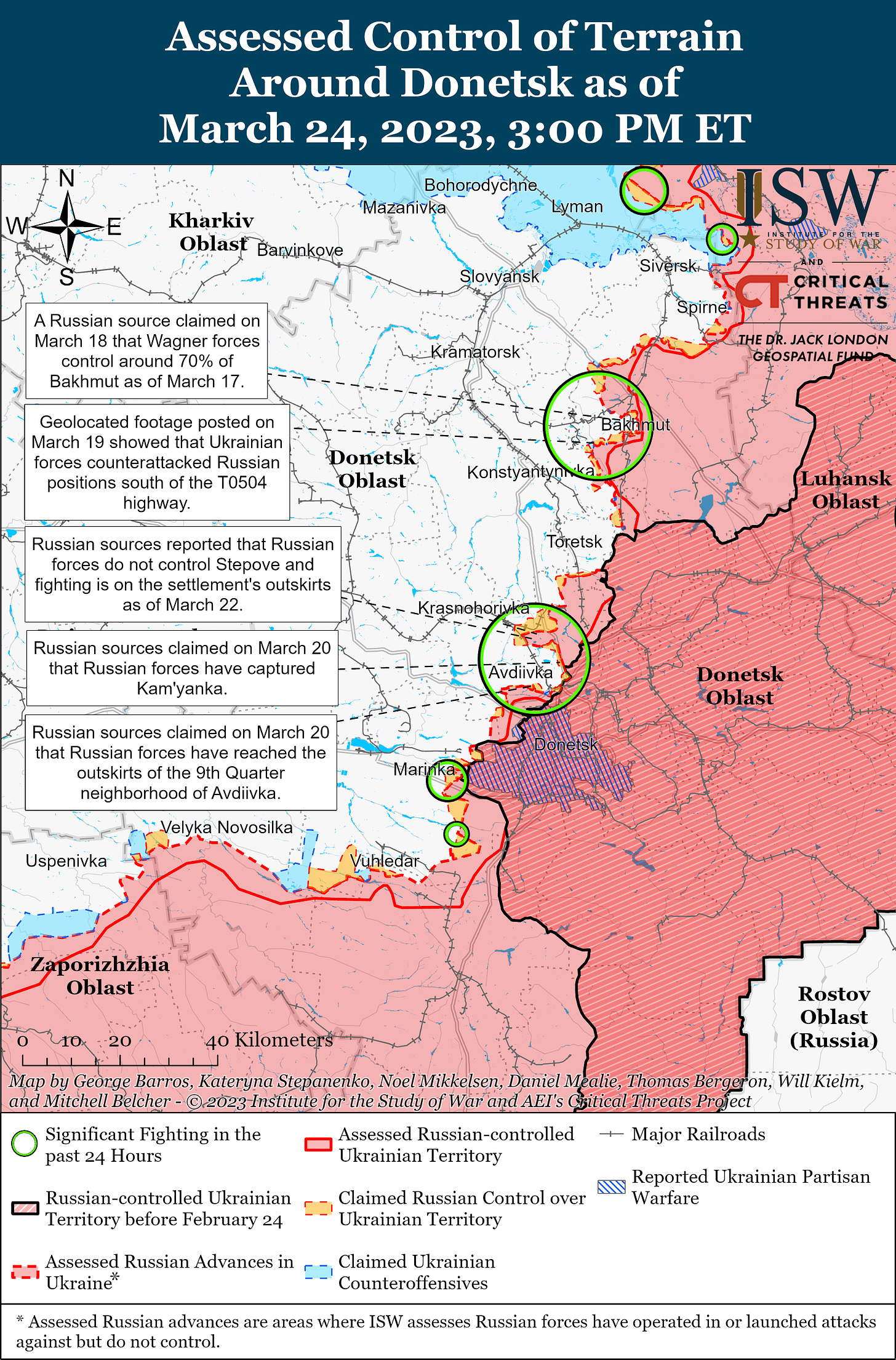
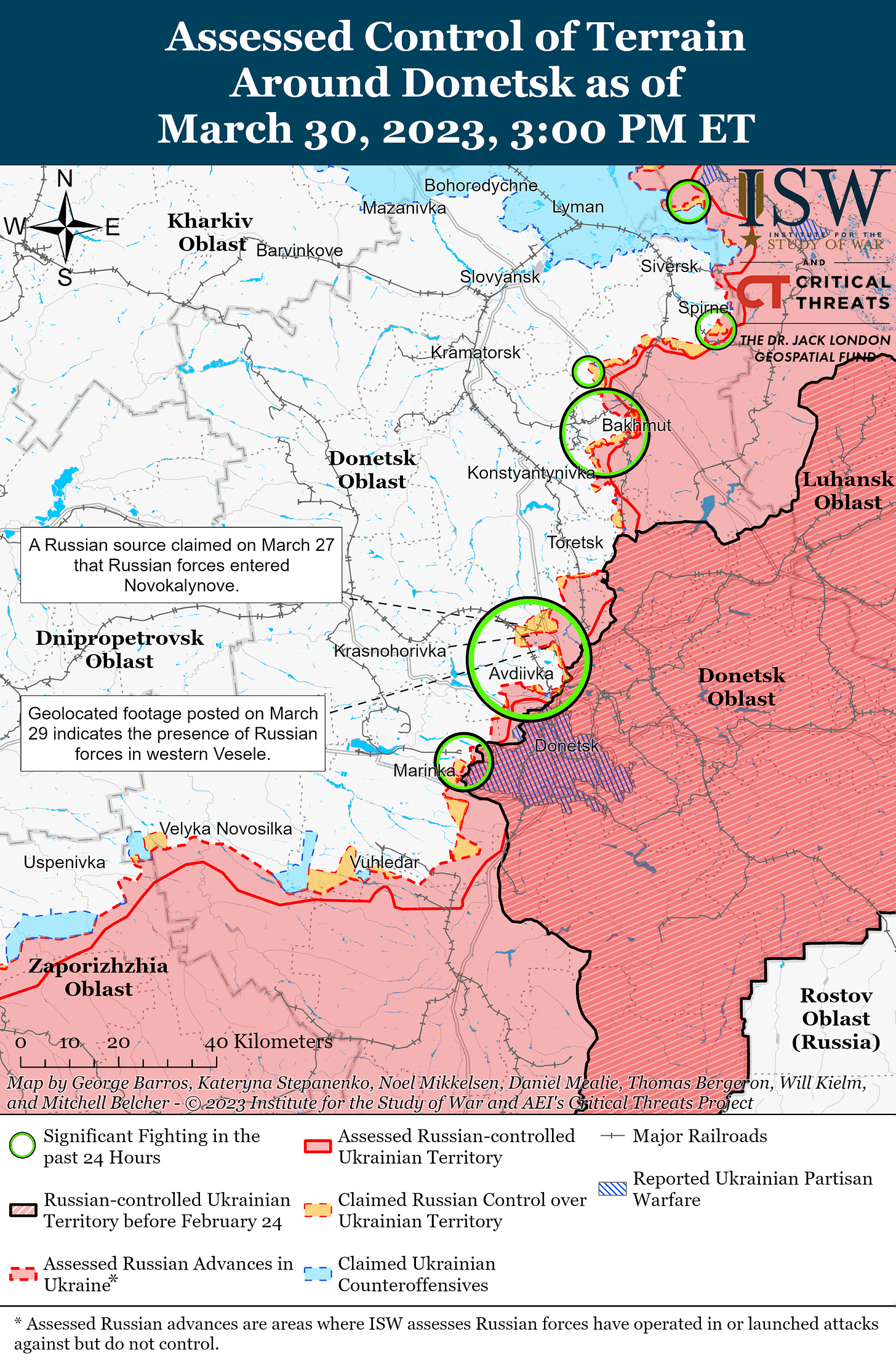
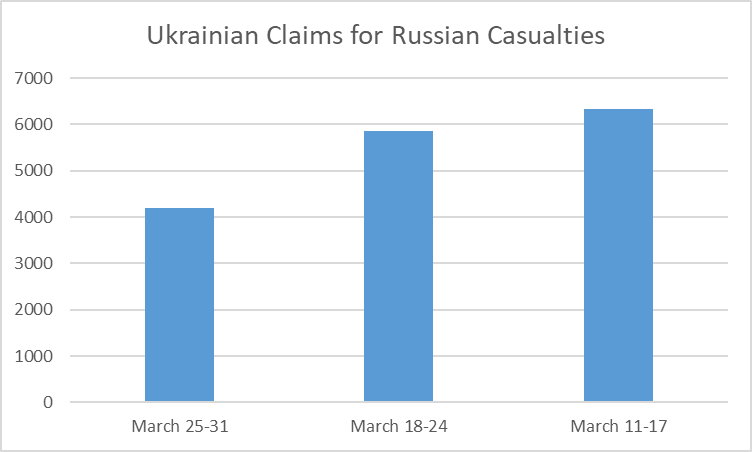

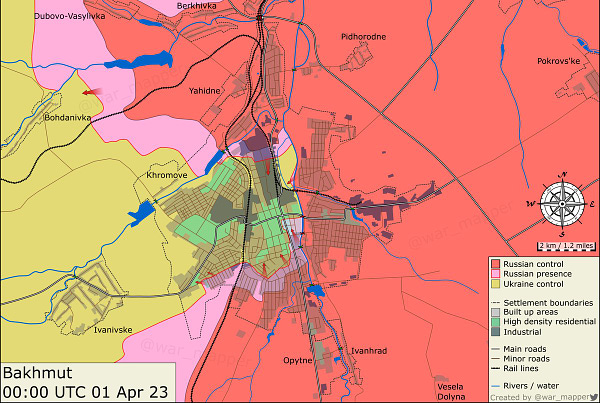

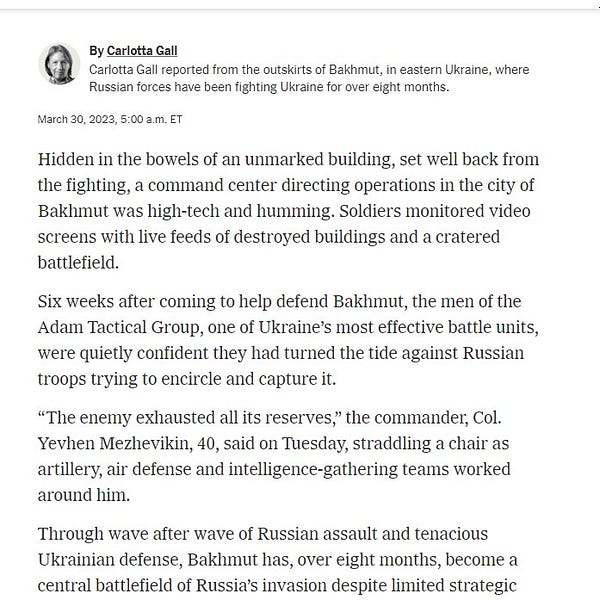



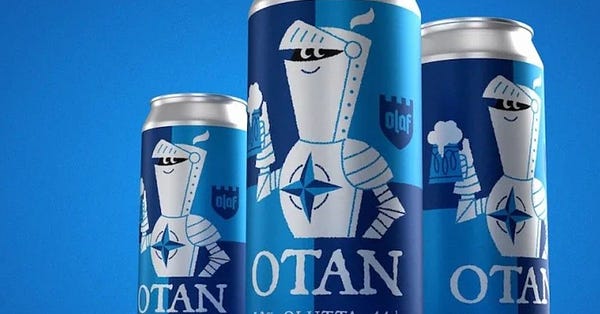



















0 comments:
Post a Comment